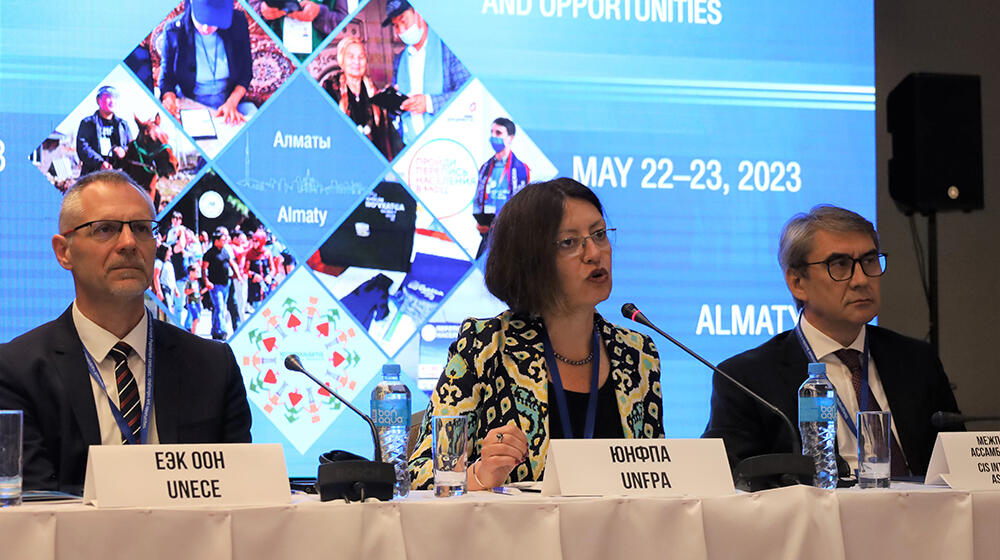A two-day international forum on population censuses in the CIS region, held on 22-23 May 2023 in Almaty, reaffirmed the importance of censuses for socio-economic forecasting and evidence-based policy-making.
The forum, which was organized by Kazakhstan’s Bureau of National Statistics, the CIS Interstate Statistical Committee and UNFPA, served to discuss experiences from recent censuses in the region and draw lessons for the next round due in 2030.
Representatives of national statistical offices from ten CIS countries – Azerbaijan, Armenia, Belarus, Kazakhstan, Kyrgyzstan, the Russian Federation, Moldova, Tajikistan, Turkmenistan, and Uzbekistan – agreed on a number of commitments which will guide their preparations for the next census round.
“Censuses remain an essential data source for countries in the CIS region, and this forum has provided an excellent platform for experts to shape the future of data collection, analysis and dissemination as we’re moving towards the next census round in the region,” said Giulia Vallese, UNFPA Deputy Regional Director for Eastern Europe and Central Asia.
Participants shared their experiences with different approaches towards census data collection and dissemination with a view to prepare for the 2030 census round, which will commence in 2025. Participants also discussed the importance of data analysis and dissemination, including ways in which census data can be made publicly available at various levels of data disaggregation while observing regulations regarding data protection. They committed to establishing robust legal frameworks for the 2030 census round, in alignment with privacy protection legislation. Participants also agreed on the importance of digital technologies and the use of administrative data and separate social-demographic surveys as ways of decreasing the burden on respondents and state resources. The CIS governing bodies were recommended to align future census dates for harmonization.
The Chairperson of the Bureau of National Statistics of the Agency for Strategic Planning and Reforms of the Republic of Kazakhstan, Zhandos Shaimardanov, noted that “digital technologies can help reduce the burden on respondents and census staff and accelerate the processing and publication of population census results as the experience of Kazakhstan has shown.”
The forum also provided a platform for enhanced collaboration between the various National Statistical Offices in the CIS region and international collaborating partners.
“We welcome the commitments made by the statistical offices at the forum and hope they will contribute to our common goal of generating better data for better policies, for the well-being of the people in the region,” said Ms. Vallese.
The forum was held under the CISPop programme, a regional initiative led by UNFPA in close collaboration with CIS-STAT and other partners to strengthen population data collection, analysis and utilization for evidence-based policy-making in the CIS region.


